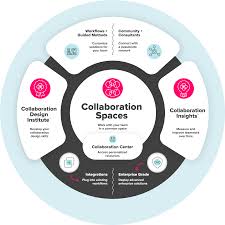Gender Discrimination: A Persistent Issue in Society
Gender discrimination is a deeply rooted problem that continues to plague societies around the world. It refers to the unfair treatment or prejudice against individuals based on their gender, often resulting in unequal opportunities and rights.
One of the most common forms of gender discrimination is the disparity in pay between men and women for equal work. Despite efforts to address this issue, women still earn less than their male counterparts in many industries. This wage gap not only affects individual women but also perpetuates systemic inequality.
Another prevalent example of gender discrimination is the underrepresentation of women in leadership positions. Despite women making up a significant portion of the workforce, they are often overlooked for top roles in companies and government. This glass ceiling hinders progress towards true gender equality.
Gender discrimination also manifests in societal expectations and stereotypes that dictate how men and women should behave. These rigid norms can limit individuals’ freedom to express themselves authentically and contribute to a culture of sexism and bias.
Addressing gender discrimination requires a multifaceted approach that involves legal protections, education, and cultural shifts. Organizations and policymakers must implement policies that promote equal opportunities for all genders, while individuals can challenge stereotypes and support inclusivity in their communities.
By raising awareness about gender discrimination and advocating for change, we can create a more equitable society where everyone has the opportunity to thrive regardless of their gender.
7 Benefits of Addressing Gender Discrimination: From Promoting Equality to Fostering Solidarity
- Promotes gender equality and fairness
- Raises awareness about systemic issues
- Encourages dialogue on gender-related topics
- Drives advocacy for policy changes
- Empowers individuals to stand up against discrimination
- Fosters a sense of solidarity among marginalized groups
- Leads to increased understanding of intersectionality
Four Consequences of Gender Discrimination: Inequality, Stereotypes, Mental Health Impact, and Barriers to Equality
- Gender discrimination perpetuates inequality by limiting opportunities for individuals based on their gender.
- It reinforces harmful stereotypes and societal norms that can lead to bias and prejudice against certain genders.
- Gender discrimination can have negative effects on mental health, self-esteem, and overall well-being of those who experience it.
- It hinders progress towards true gender equality and social justice by creating barriers to equal rights and representation.
Promotes gender equality and fairness
Gender discrimination, when addressed and rectified, can actually promote gender equality and fairness in society. By recognizing and actively working to eliminate discriminatory practices based on gender, we can create a more equitable environment where individuals are judged on their merits and abilities rather than stereotypes or societal expectations. Through promoting equal opportunities and treatment for all genders, we can strive towards a more just and inclusive society where everyone has the chance to succeed regardless of their gender.
Raises awareness about systemic issues
Gender discrimination, albeit a negative phenomenon, can inadvertently raise awareness about systemic issues that perpetuate inequality. By shedding light on the disparities and biases faced by individuals based on their gender, discussions around gender discrimination can spark important conversations about the underlying structures of power and privilege within society. This heightened awareness can lead to advocacy efforts, policy changes, and educational initiatives aimed at dismantling systemic barriers and promoting a more equitable and inclusive environment for all genders.
Encourages dialogue on gender-related topics
Gender discrimination, despite its negative implications, can inadvertently encourage dialogue on gender-related topics. By highlighting disparities and injustices based on gender, discussions are sparked around issues such as pay equity, representation in leadership roles, and societal expectations. These conversations can lead to increased awareness, empathy, and ultimately drive positive change towards a more inclusive and equitable society where all genders are respected and valued.
Drives advocacy for policy changes
Gender discrimination, while inherently unjust and detrimental, can inadvertently drive advocacy for policy changes that promote gender equality. When instances of discrimination come to light, they often spark public outrage and mobilize individuals and organizations to push for legislative reforms that protect the rights of all genders. By shining a spotlight on the systemic issues at play, gender discrimination can serve as a catalyst for meaningful policy advancements that aim to dismantle barriers and foster a more inclusive society where everyone is treated with fairness and respect.
Empowers individuals to stand up against discrimination
Gender discrimination, in a paradoxical way, can empower individuals to stand up against discrimination. When faced with inequality and bias based on gender, individuals often find the strength and motivation to speak out against such injustices. Experiencing discrimination firsthand can ignite a sense of resilience and determination to advocate for equal rights and opportunities for all genders. This empowerment can lead to collective action, awareness-building, and positive change in society’s attitudes and practices towards gender equality.
Fosters a sense of solidarity among marginalized groups
Gender discrimination, in a somewhat paradoxical manner, can foster a sense of solidarity among marginalized groups. When individuals face discrimination based on their gender, they often come together to support one another, share experiences, and advocate for change. This shared struggle can create a bond of unity and empowerment among those who are marginalized, leading to collective action and a stronger voice in the fight against inequality.
Leads to increased understanding of intersectionality
Gender discrimination, while inherently harmful, can inadvertently lead to increased understanding of intersectionality. By recognizing how gender intersects with other aspects of identity such as race, ethnicity, sexual orientation, and socioeconomic status, individuals and organizations can gain a deeper insight into the complex ways in which discrimination operates. This heightened awareness of intersectionality can foster more inclusive and comprehensive approaches to addressing inequality and promoting diversity in society.
Gender discrimination perpetuates inequality by limiting opportunities for individuals based on their gender.
Gender discrimination perpetuates inequality by limiting opportunities for individuals based on their gender. When individuals are unfairly treated or denied access to resources, education, or employment opportunities simply because of their gender, it creates a cycle of disadvantage that hinders personal growth and societal progress. This constricts the potential of talented and capable individuals, leading to a loss of diverse perspectives and contributions in various fields. By perpetuating this cycle of inequality, gender discrimination not only harms the individuals directly affected but also weakens the fabric of society as a whole by stifling innovation and progress.
It reinforces harmful stereotypes and societal norms that can lead to bias and prejudice against certain genders.
Gender discrimination reinforces harmful stereotypes and societal norms that can lead to bias and prejudice against certain genders. By perpetuating the idea that one gender is superior to another or that certain traits are inherently tied to a specific gender, discrimination creates a breeding ground for inequality and injustice. These stereotypes not only limit individuals’ potential but also contribute to a culture of intolerance and division. When society accepts and normalizes discriminatory beliefs, it becomes harder to challenge ingrained biases and create a more inclusive and equal environment for all genders.
Gender discrimination can have negative effects on mental health, self-esteem, and overall well-being of those who experience it.
Gender discrimination can have detrimental effects on the mental health, self-esteem, and overall well-being of individuals who are subjected to it. Constant exposure to discriminatory behavior based on gender can lead to feelings of inadequacy, anxiety, and depression. The persistent sense of being undervalued or marginalized due to one’s gender identity can erode self-esteem and contribute to a sense of worthlessness. These negative impacts on mental health can significantly affect an individual’s overall well-being and quality of life, highlighting the urgent need to address and eliminate gender discrimination in all its forms.
It hinders progress towards true gender equality and social justice by creating barriers to equal rights and representation.
Gender discrimination poses a significant con as it hinders progress towards true gender equality and social justice by creating barriers to equal rights and representation. When individuals are discriminated against based on their gender, they are denied opportunities to fully participate in society on an equal footing with others. This exclusion not only perpetuates inequality but also limits the diversity of voices and perspectives that contribute to a more just and inclusive society. By erecting obstacles to equal rights and representation, gender discrimination undermines the fundamental principles of fairness and equality that are essential for building a more equitable world for all.




Leave a Reply